In his morning meditation at the beginning of February, Pope Francis commented on King David’s journey from sin to repentance and humble sanctity, saying, “The only path to humility is humiliation.”
Humility is becoming a lost virtue in the modern world. Our digital technology seems to make us think about ourselves all the time. But C.S. Lewis reminds us: “True humility is not thinking less of yourself; it is thinking of yourself less.” Humility disappears because we are so focused on ourselves that we forget to think about others. We forget that we are as imperfect as everyone around us.
Each of us makes mistakes, some hurtful, some which only embarrass us. But we have forgotten the beauty that issues from reacting with sincere contrition or simple laughter rather than self-righteous offense. More, we have lost the joy that comes from caring genuinely about others more than about ourselves.
The Pope wants to remind us that, like David, we are going to fall. Sometimes we are the ones in the wrong. But we cannot grow in virtue if we do not accept this. I can be so proud of myself, but my desire for the virtue of humility will never be fulfilled if I react in anger to the situations that God sends to help me. I will only become humble if I learn to recognize my errors, then seek to heal the hurts I cause. After all, if the perfect Lord was willing to humble Himself on account of my sin, I must thank Him by humbling myself in a similar way. —Abigail C. Reimel

“Psalter of Paris, Nathan Reproves David and David Repents”
“Walking the Path of Humiliation”
February 1, 2016: Morning Meditation by Pope Francis
There can be neither humility nor holiness without walking the path of humiliation. This truth is recalled in the story of David. In the First Reading, the story of King David continues. The story began when Samuel went to the house of David’s father, and David was anointed king, even though he was still a boy.
Then he grew up. He had his problems, but he was always a man respectful of the king who did not like him. In fact, the king “knew that he would be his successor.” And “in the end David managed to unite the kingdom of Israel: everyone together with him.”
However, he was feeling insecure and his zeal for the house of the Lord began to weaken. At that moment — we heard the other day — David was one step away from becoming corrupt.
Thus the holy King David, a sinner but a saint, became corrupt.
But then “the Prophet Nathan, sent by God” helped him understand what a bad thing he had done, an evil thing: because a corrupt person doesn’t realize it. It takes a special grace to change the heart of a corrupt person.
Thus, David, who still had a noble heart, recognized his sin; he recognized his fault. What did Nathan say to him? These were his words: “The Lord has forgiven your sin, but the corruption you have sown will grow. You killed an innocent man to hide adultery. The sword shall never depart from your house.” Thus, God forgives sin, David converts, but the wounds of corruption are difficult to heal. We see this in so many parts of the world.
This is the point in David’s story, that we arrive at in today’s passage: David’s son battles against his father. He wants power: his son is already corrupt.
But what does David do? With the nobility that he had won back after his sin — and also the penance he had done to save the son who had died, the child of adultery — he rejoins his own: “Let us flee the city lest Absalom” — his son — “should overtake us, then visit disaster upon us and put the city to the sword,” as was customary in those times.
God castigates David harshly: “The sword shall never depart from your house.” But, David defends the house and flees; he leaves. Is he perhaps a coward? No, he is a father. And he allows the ark to return, he does not use God to defend himself.
In other words, David leaves in order to save his people: this is the path of holiness that David begins to follow, after the moment in which he became corrupt.
The passage presents David weeping as he climbs the steep Mount of Olives. “His head was covered,” a sign of mourning, and he was walking barefoot. He was doing penance. “And all those who were with him also had their heads covered and they were weeping as they went: weeping and penance.”
Scripture also tells us that “some, who did not like him, began to follow and curse him.” Among them was Shimei, who called him “murderer,” reminding him of “the crime he had committed against Uriah the Hittite in order to cover up his adultery.”
Abishai, one of the people closest to David, “wanted to defend him” and wanted to take off Shimei’s head in order to silence him. But David goes “a step further: ‘If he is cursing it is because the Lord has said to him, ‘Curse David!’”
He then “says to his servants: ‘My own son, who came forth from my loins, is seeking my life.’” He is referring to his son Absalom. This is why he turns again to his servants saying: “Let this Benjaminite curse, for the Lord has told him to.” The question is that David can see the signs: it is the moment of his humiliation, it is the moment in which he is paying for his fault.
Therefore, he says: “Perhaps the Lord will look upon my affliction and make it up to me with benefits for the curses he is uttering this day.”
Basically, he entrusts himself to the Lord’s hands: this is David’s path, from the moment of corruption to this entrustment to the hands of the Lord. This is holiness. This is humility. I think that each one of us, should someone say something bad about us, would react by saying, “No, I didn’t do it, this isn’t true, no!” In fact, we immediately try to say that it isn’t true.
Or else we do as Shimei did: we say something even worse in response. But humility can reach a heart only through humiliation: there is no humility without humiliation. And, if you are not able to bear some humiliation in your life, you are not humble. That’s how it is: I would say it’s that mathematical, it’s that simple!
For this reason, the only path to humility is humiliation. Therefore, David’s goal, which is holiness, is reached through humiliation. Also, the goal of holiness that God gives to his children, gives to the Church, comes through the humiliation of his Son who lets himself be cursed, who lets himself be borne on the Cross, unjustly. This Son of God who humbles himself, is the path of holiness: with his attitude, David prophesies the humiliation of Jesus.
I ask the Lord, for each of us, for all the Church, the grace of humility, but also the grace of understanding that it is impossible to be humble without humiliation.

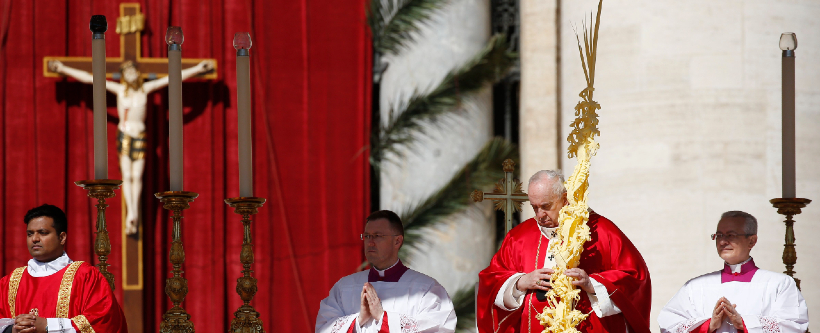
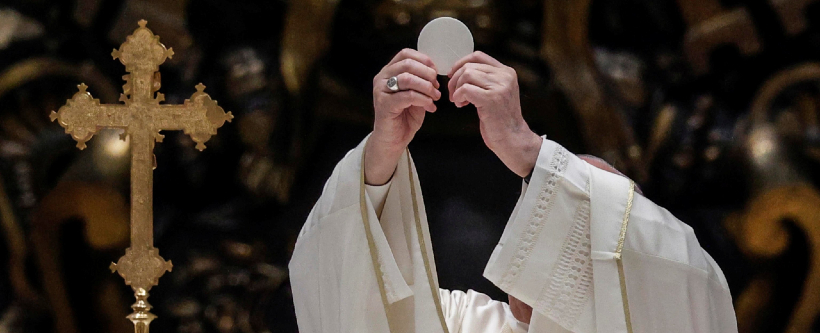
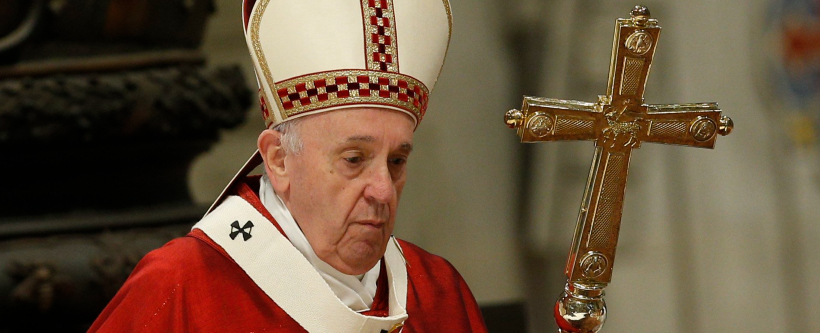
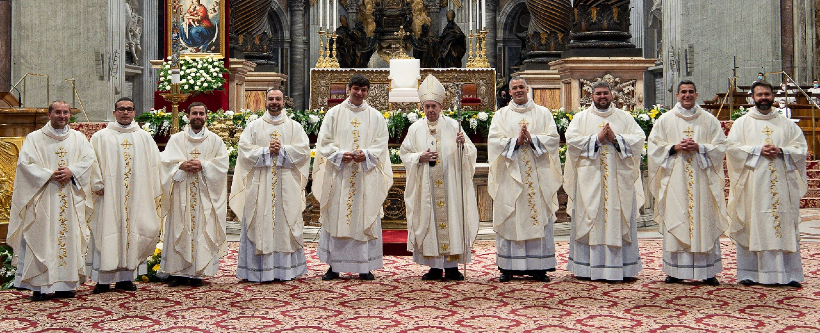
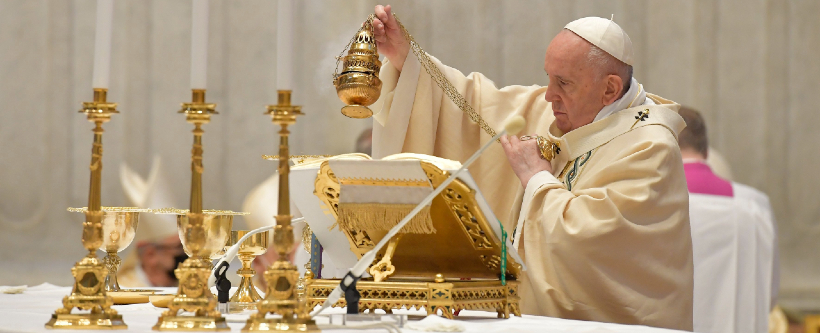
Facebook Comments